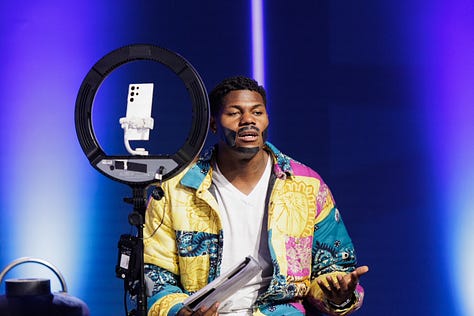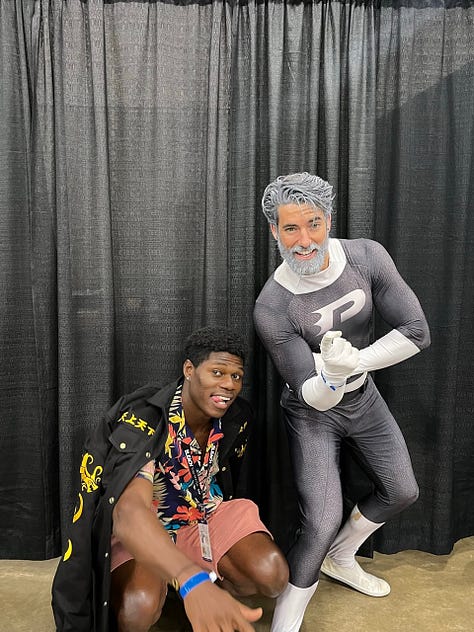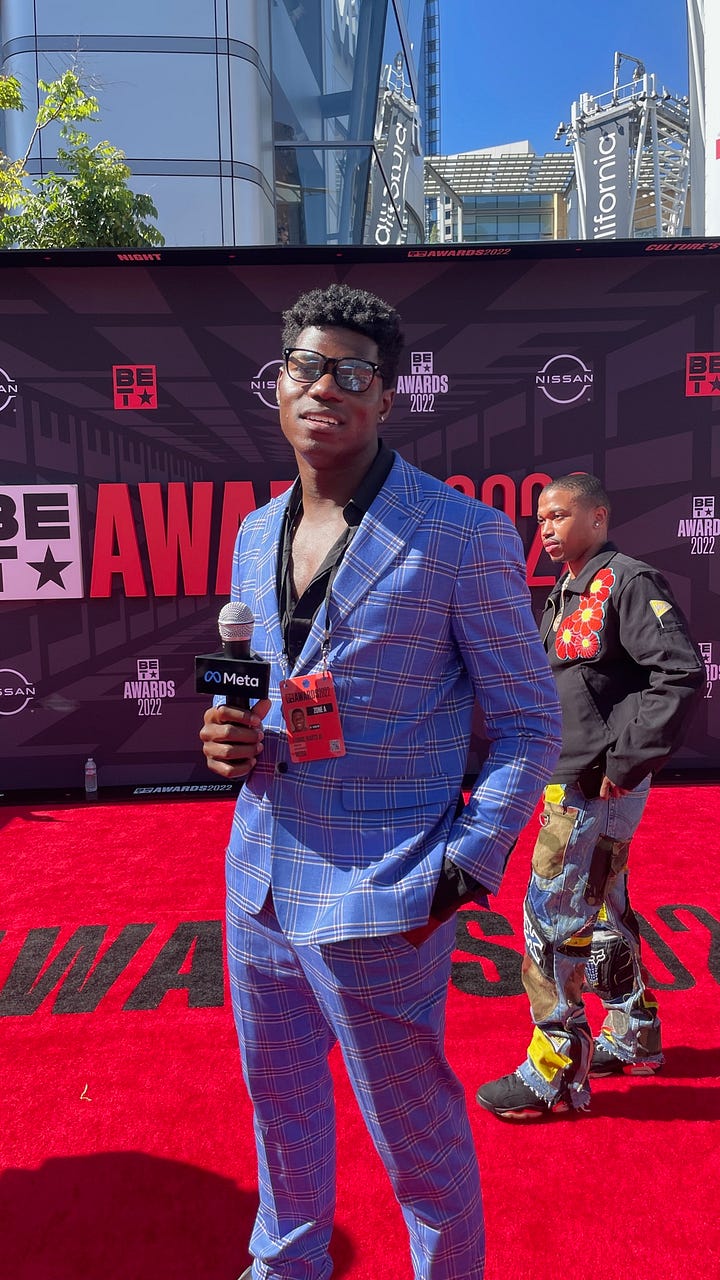Lonnie IIV, Digital Content Creator
Lonnie IIV is a full-time digital content creator who amassed over 2.4M followers on Tiktok and across various social platforms.





“My family had a camcorder growing up so I always tried to use it to film stuff. It would be silly things like my family in their everyday lives or me laughing with them. When Youtube and Vine came out, I saw for the first time what people can really do with video content. I was more of a consumer than a creator at that point but I was like, dang, that’s awesome.
I watched a video from Gary Vaynerchuk where he talked about this new app called Tiktok. I felt like he was talking to me directly when he gave advice on content creation. I have always been passionate about filming and building a community so I thought this is it, this is my chance.
The first videos I made on Tiktok were taking viral Tweets and putting characters and voices to it. I started making videos in October 2019 and then, over the next six months, my audience grew to millions of followers. With the pandemic, obviously, everyone was stuck inside with their phones so that was when everything took off.”
Basically, the pandemic served as an inflection point for your career.
“Oh, for sure. Things were moving a little bit before but the pandemic really solidified it. I knew that platforms needed content to keep people entertained at home so I increased my video output.”
What are some key elements of making viral content?
“Oh boy, that is a good question. I actually just talked to my friend about this on my podcast. I have so many friends on social media who are way better at it than I am but some key elements of virality are relevancy and making people feel an emotion.
We think our experiences are unique but we are not that special. Capturing those relevant moments that everyone has experienced tends to really resonate with people.
And whenever you can make someone feel a pure and straightforward emotion, it will help the content go viral. If you make someone feel excited, happy, nostalgic, or any kind of emotion, it has more legs to run on if that makes sense.”
That makes a lot of sense. How do you plan your content creation?
“I’ve been making stupid videos since I was in middle school and have been trying to hone in on everything for the past three or four years, to figure out what ticks and what doesn’t. But it's very hard to plan because the thing that works well for one person might completely flop for another person. I tried to copy the format of another person’s video one time and I got so annoyed. It was so dumb and I hated it. I had to revert back to doing what I felt is most authentic to me.”
What are some gray areas that need innovating in the creator economy?
“How brands and content creators evaluate each other. Historically, brands have been the first ones to take advantage of content creators. Some creators don’t know the true value of their audience reach so they will settle for any compensation. I think there is more regulation now.
For the brands, they may get someone with a huge following but that creator may not know how to activate their audience if that makes sense. Brands need to think more about conversion than following.”
Can you clarify audience activation?
“With the rise of short-form content, we’ve seen really fast growth in gaining an audience because it’s easy to follow a creator. But if you compare this to something like YouTube, where content creators don't really blow up that quickly, you have to really devote time to building an affinity with each other. Mr. Beast, for example, has been making videos for, like, eleven years or so and was unnoticed for a long time before he gained traction. You can’t fake that loyalty and dedication.
When marketing to your audience, it's like trying to sell something to your friend you met on the first day of school versus trying to sell something to a friend you’ve had for the past five years.”
The creator economy and influencer marketing is a multi-billion dollar industry. From your understanding, how do brands gauge compensation for creators?
“It was the wild, wild west before but in recent times, it has become more standardized. Brands set aside a budget for a creator based on their following and the performance of their previous six months of videos. Brands give a rate and stick to that rate. Some metrics that go into consideration are past views and engagement KPIs.
There is a risk for brands as well because they don’t know how well a sponsored video will perform. So they try to minimize that risk by basing it on previous views and past performance. Often times they use SocialBlade to analyze metrics that go into negotiations with a creator.”
Do you think brands should continue to invest in influencers as a marketing channel?
“Absolutely. It’s entirely necessary to work with creators because you gain access to a very targeted audience. If you find the right creator who has already built trust and is willing to activate their audience, you get a lot of pull.”
Where do you see the future of the creator economy going?
“I think it's going to be brands partnering with fewer creators and doing long-term deals with people they trust and like. It can be risky to work with new talent so brands will gravitate toward creators that have done successful campaigns in the past. Long-term partnerships will save money on both sides and benefit both parties a lot more.”
What do you think appeals to Gen-Z versus Millennials?
“Just my opinion, but I think millennials have that ‘Friends’ or ‘The Office’ type of humor. Having been born in 1995, I am just coming to understand Gen-Z’s humor. I think Gen-Z is a bit more cheesy, random, unexpected, and unfiltered. Unfiltered and out-of-pocket.”
That’s interesting you say that because there is also that cancel culture amongst Gen-Z, where things have to be politically correct.
“So they're very much aware of political correctness, but anything outside that, like when it comes to politeness, they don't care as much. I think Gen-Z wants to be politically correct but not necessarily polite.
There’s the attitude of, I can say what I want as long as it's not hurtful but I don't need to be polite about it. They like to use what we consider potty humor or crude humor. You know?”
Click here to follow Lonnie IIV.



